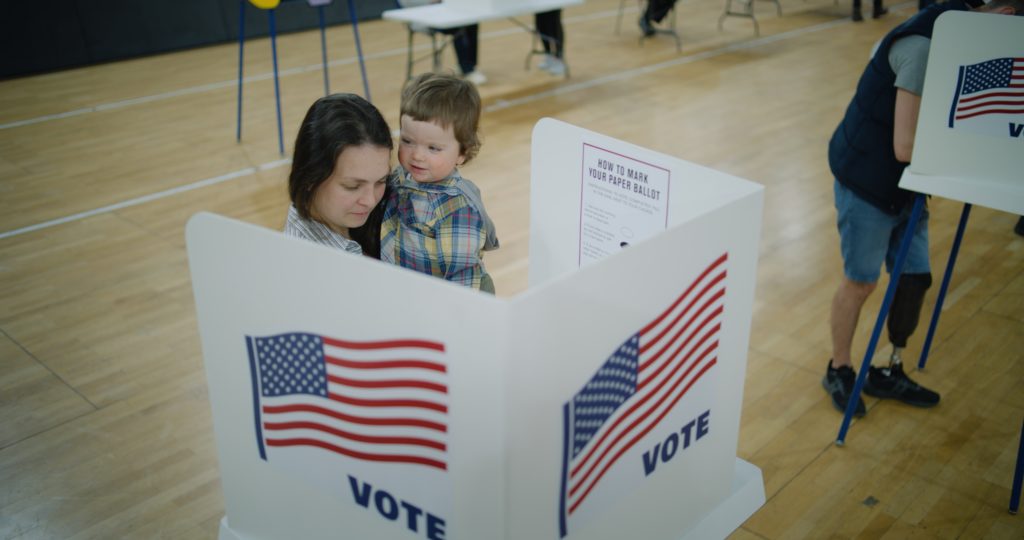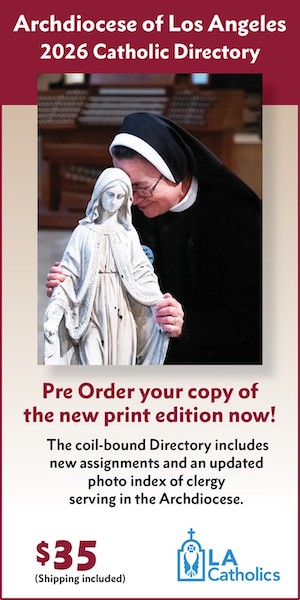Something dreadful this way comes. Can you feel it? Election Day (Nov. 5) is lumbering toward us, and you can just see its head and shoulders rising up against the horizon.
Look for an amping up of dramatic hysteria in the lead-up to that day; then, a dreadful letdown for one-half of the country and gleeful schadenfreude for the other. And through it all, fury, recrimination, frustration, exasperation, misunderstandings, hard words and hurt feelings — occurring not only between broad categories of Americans but between relatives of flesh and blood.
The sad fact is that the fault line that runs quite evenly through American society also runs through many families, with the same awful effects. It runs through ours, I’m sorry to say.
Already we are experiencing strangely stilted Sunday dinners in which no one is bringing up any topics outside of the weather, and how chubby the newest baby in the family has gotten. There are one or two at the table who are just one poke or jab from becoming entirely unhinged, and every one of us wants to avoid that worst of irate questions: “Are you seriously considering voting for X?”
Reason and logic won’t convince the other side that one set of policies is superior and will better affect the common good. Or that the other party is pulling the wool over voters’ eyes, promising sensible moderation but showing every sign of governing from the extreme fringe if elected. Charges of ignorance or willful blindness quickly devolve, we’ve found, into accusations of being unfeeling, uncharitable, careless of the poor, and vulnerable. These hurt. A lot.
I remember a time when it was different, when the stakes did not seem so existential, and when the disagreements were more political and less foundational. Perhaps things always look better in the rearview mirror, but I’m pretty sure that everyone used to agree on broad basics — that there was a kind of overarching narrative that we all accepted and that united us.
It went something like this: Families were the bedrock of society, children were a blessing, inviolate, and the future; America made mistakes but it was the greatest country on earth; worshiping God was not only good for each individual, but indispensable to a virtuous citizenship.
The legacy media employed real journalists who reported the facts, instead of working to influence our thinking. The schools, whether public or private, taught only the three Rs (reading, writing, and arithmetic), plus history, and pride of country. Free speech, like free association and religious freedom, were understood by all to be the indispensable ingredients of American flourishing.
It seems these previously unifying ideas are no longer held in common by both parties (or maybe we don’t share a common language when talking about them). My “free speech” is my relative’s “misinformation” and his idea of “family” looks more like dysfunction and irresponsibility to me than that safe haven for babies and other vulnerable people that I call “family.”
One angry relative tells me my unease about diversity, equity, and inclusion policies makes me a racist (gulp) and I say that my children come in every color and race, and what I want for them is a color-blind society — Martin Luther King’s great dream. Our greatest fracture line may be over the issue of abortion, which to me is the direct killing of the most defenseless human, and to my contenders a morally neutral act that ensures the flourishing of women.
I think you can see why we stick to the weather and the chubbiness of babies.
A few days ago I called one of these people that I love and don’t see eye-to-eye with. I reminded him that God gives us only a handful of years to enjoy each other’s company. Soon I will be gone, and he will be gone. And I told him that I thought the personal should be kept free and clean from the political, because the personal is what makes our lives worth living.
His smile at the sight of my face is something I am loathe to lose over an election which, in the end, decides temporalities that mean so little against the great panorama of the eternal. That is the vista that matters, and the one that we are not meant to mar by harsh words and harsher judgments.
He took it well, in the spirit in which it was intended. He told me that my smile was important to him too, and that he wouldn’t give that up for anything. We agreed to disagree, and to love each other through this election, and the next, as family does.

